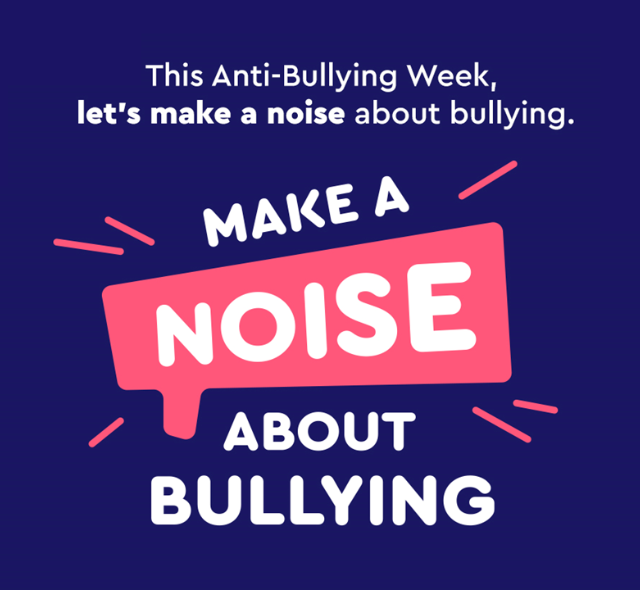- UNIFORM BY SCHOOL
- Girls School Uniform
- Boys School Uniform
- Skirts
- Boys Trousers
- Girls Trousers
- Polo Shirts
- Blouses
- Shirts
- Blazers
- PE Kit
- Clearance


Girls School Uniform


Boys School Uniform


FREE delivery - Ends Monday at Midnight
(X)







When you send your children off to school for the day you hope they’re in a safe and happy environment. Unfortunately though, some children are bullied at school, and it’s something all parents worry about. Fortunately, schools are very aware of, and keen to stamp out bullying – last year 80% of schools in England and Wales took part in Anti-bullying Week.
Taking place from Monday 13th to Friday 17th November, this year’s Anti-bulling Week has the theme ‘Make A Noise About Bullying’, which will ask everyone, wherever they are – at school, home or online – to reach out and support each other. The week will kick off with Odd Socks Day on Monday 13th November, where adults and children wear odd socks to celebrate uniqueness. Check to see if your school is taking part and what you can do to help.
What is bullying?
Bullying can be manifested in many different ways:
Bullying isn’t okay in any form, and unfortunately with the rise of children having access to smartphones, it isn’t left behind at the school gates.
What to look out for
The main things to look out for can include a change in enthusiasm for school or social activities, being withdrawn or acting out of character. Children also might say they aren’t feeling well more often to avoid going to school. With most teenagers having a mobile phone nowadays, look out for them being secretive about messages or hiding their screen when you’re nearby.
Physical signs can include unexplained injuries and damaged or even missing items of clothing.
How can you help?
If your child opens up to you that other kids are being unkind or hurting them, always listen and take them seriously. Make sure you consider the facts, and work with them to decide how to take the next steps in tackling it.
If you think something is wrong and your child is struggling to open up to you, it’s important you try to gently speak to them about it. Have they fallen out with their friendship group recently? Have they dropped hints that other kids are being mean? Try also speaking to other parents in their friendship group and if necessary, speak to their school to find out if they’re aware of anything or to give them a heads up.
What to do if you think your child is bullying someone
It’s hard to accept, but what do you do if you think or find out your child is the one who’s doing the bullying?
Children need guidance from adults to understand how to behave towards others and when they might have crossed the line. The Anti-bullying Alliance advises that children need to learn that teasing or ‘banter’ can become bullying behaviour if it’s persistent and causes hurt or offence to another child.
It’s natural sometimes for friends to fall out – children and teenagers are at a crucial developmental stage or life and are trying to find out where they belong in the world.
But it’s important to make sure that they’re not excluding or doing or saying hurtful things to others. They might not realise that it’s bullying behaviour and you need to make it clear what is and isn’t acceptable.
Sometimes kids are influenced into bullying behaviour by friends or their peer group. They might be scared to stand up to the ringleader, so you need to help them realise that no-one has the right to pressure them into joining in on bullying behaviour.
If you need more information, the Anti-bullying Alliance has some great downloadable guidance for parents who think their child might be being bullied.

